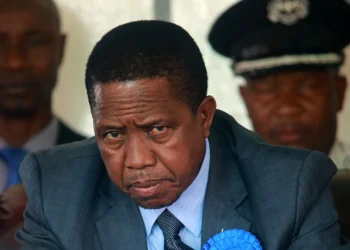THE Government is finalising new regulations to set up a State-controlled third-party motor vehicle insurance scheme that will assume the responsibility of underwriting compulsory vehicle liability insurance, currently handled by private insurers.
The regulations, set to be unveiled next month, will see private insurers relinquishing their role in underwriting third-party motor vehicle insurance, which is compulsory in terms of the Road Traffic Act.
Presently, it covers death, injury and damage to property in road traffic accidents.
The authorities believe the coverage offered by private insurers is insufficient and often leaves policyholders with additional expenses, especially when claims are made after accidents.
Conversely, the State-backed scheme is envisaged to offer a broader range of benefits, including covering medical expenses incurred following accidents; financial compensation for injuries sustained in accidents; funeral grants in the event of an accident-related death and compensation for lost income due to injuries.
In an interview with The Sunday Mail, Transport and Infrastructural Development Minister Felix Mhona said Cabinet will deliberate on the proposed regulations this week.
“We are working on the modalities, which include promulgation of a statutory instrument (SI),” he said.
“How the scheme will work will be revealed through the SI. At the moment, we do not know under which department the insurance will be housed.
“But we are making proposals on how to handle it. I am presenting a Cabinet paper on that next week (this week). We will be able to share more on how it will work then.”
Presenting the 2024 National Budget last year, Finance, Economic Development and Investment Promotion Minister Professor Mthuli Ncube said the authorities were facing challenges in enforcing third-party liabilities.
“Whilst insurance is an appropriate mechanism to cover liability costs, it has, however, proved difficult to enforce third-party liabilities since private insurers are profit-oriented and, hence, have no motivation to compensate for the losses incurred,” he said.
“In that regard, I propose that the Government assumes third-party motor vehicle insurance to private and public motor vehicles, as is the case with other countries in the region.
“The prescribed compensation limits provided through the Road Traffic Act are not adequate since they are restricted to death, permanent disability, medical and funeral expenses.”
Private insurers offer three basic vehicle insurance policies — third-party cover; full third-party, fire and theft (FTPFT); and comprehensive insurance.
FTPFT covers third-party bodily injury or death; third-party property damage; and damage or loss caused by fire or theft.
Comprehensive cover offers insurance against accidental damage or loss; fire, lightning, explosion or damage to the insured vehicle; and theft of vehicle, accessories or spare parts.
It also covers accidental damage of windscreen or door glass; and legal liability of the insured arising from loading and unloading risk up to set limits.
Third-party policy holders have often complained about delays or difficulties in processing and settling claims by private insurers.












